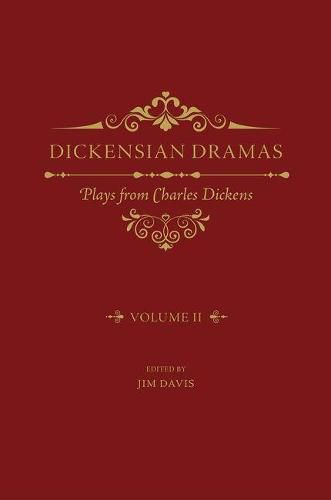Readings Newsletter
Become a Readings Member to make your shopping experience even easier.
Sign in or sign up for free!
You’re not far away from qualifying for FREE standard shipping within Australia
You’ve qualified for FREE standard shipping within Australia
The cart is loading…






Dickens loved the stage–he enjoyed thousands of evenings in the theatre, and longed to write for it and to perform himself, an ambition he eventually satisfied by touring alone with his Readings. Victorian prejudice and his need to preserve his personal image kept him from openly becoming a stage professional earlier in his career, but all his work was informed by his dramatic imagination. He found ways of circumventing these taboos by seeking closer and closer contact over the staging of his work with dramatic writers, admired actors, and trusted theatre managements. In the later stages of his career these tacit collaborations continued (as with Celine Celeste’s staging of A Tale of Two Cities), although the 1860s and, subsequent to Dickens’s death, the 1870s also saw a number of more independent adaptations, often celebrated for the quality of acting they inspired. This book presents, for the first time, fully edited texts of some of these later plays, ranging from Dion Boucicault’s Dot (a version of The Cricket onthe Hearth) to J. P. Burnett’s adaptation of Bleak House (entitled Jo), as well as Jingle, a one-act farce adapted from James Albery’s dramatization of The Pickwick Papers.
$9.00 standard shipping within Australia
FREE standard shipping within Australia for orders over $100.00
Express & International shipping calculated at checkout
Dickens loved the stage–he enjoyed thousands of evenings in the theatre, and longed to write for it and to perform himself, an ambition he eventually satisfied by touring alone with his Readings. Victorian prejudice and his need to preserve his personal image kept him from openly becoming a stage professional earlier in his career, but all his work was informed by his dramatic imagination. He found ways of circumventing these taboos by seeking closer and closer contact over the staging of his work with dramatic writers, admired actors, and trusted theatre managements. In the later stages of his career these tacit collaborations continued (as with Celine Celeste’s staging of A Tale of Two Cities), although the 1860s and, subsequent to Dickens’s death, the 1870s also saw a number of more independent adaptations, often celebrated for the quality of acting they inspired. This book presents, for the first time, fully edited texts of some of these later plays, ranging from Dion Boucicault’s Dot (a version of The Cricket onthe Hearth) to J. P. Burnett’s adaptation of Bleak House (entitled Jo), as well as Jingle, a one-act farce adapted from James Albery’s dramatization of The Pickwick Papers.